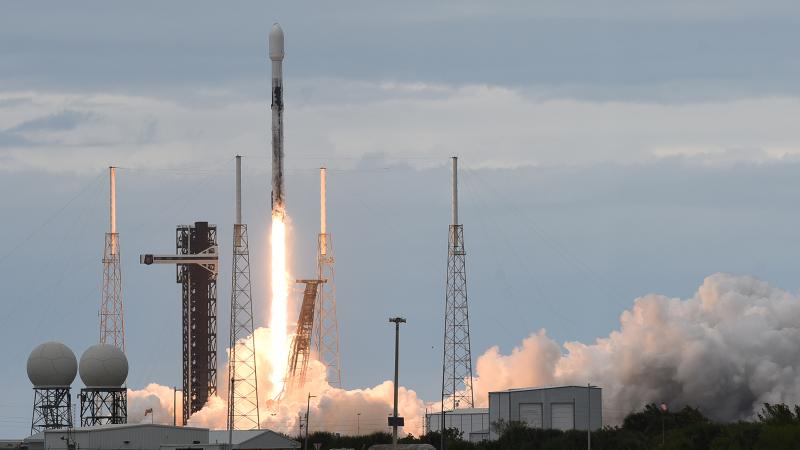Harrowing confrontation between contractors led to Fort Detrick bio-lab shutdown, NIH boss reveals
The incident sparked safety concerns that led the new NIH Director to order the lab temporarily closed and open a new probe over its safety practices.
National Institutes of Health Director Jay Bhattacharya said poor safety culture, and a feud between employees that risked the leak of an unknown pathogen, prompted him to temporarily shutter the high-level biosafety laboratory at Fort Detrick, Maryland.
Bhattacharya, who was confirmed by the Senate in late March, had only just taken the helm at the agency which was at the center of much COVID-19-era controversy when he received a report about the high-security laboratory that caused his “blood to chill,” he told the Just the News, No Noise TV show on Monday.
He said the lab reported that one researcher slashed a hole in a containment suit of another researcher, potentially exposing them to a pathogen.
A lovers' spat turns potentially deadly
“About three weeks in, I got a report that there was a lab—a BSL four lab, that is a high-security lab that deals with, like, really nasty bugs, you know, Ebola, whole bunch of other bugs—that there had been a safety incident…[that] involved a contractor cutting a hole in the bio containment suit of another worker with the intention of that, getting that worker sick with some nasty bug and potentially spreading it outside of the lab itself,” Bhattacharya said, confirming an incident first reported by Fox News earlier this month.
Fox News also reported that the incident between the two contractors was sparked by a lover’s spat, according to an anonymous official from the Department of Health and Human Services.
“I mean, I have not been scared by anything…in this job so far, except for that. When I heard that, my blood just chilled,” Bhattacharya said.
The incident, which raised significant safety concerns at the high-security laboratory, was the catalyst for the temporary closure, which halted work at the facility. Work at the Biosaftey Level 4 laboratory was halted on March 29, shortly after Bhattacharya took the helm at NIH.
The lab is equipped to handle research on highly infectious and lethal diseases like Anthrax bacteria, COVID-19, the Ebola virus, and the lesser-known but deadly Marburg and Nipah viruses, among others.
“I ordered immediately, as soon as I heard about this incident, that there's an operational pause of all, all experiments at this lab at Fort Detrick, Maryland, and that we're not going to reopen it until, until I'm satisfied that we have a group that can run it with safety first,” the director told Just the News of his decision.
“This is really, really dangerous stuff, and if we're going to play around with these kinds of experiments, it better be at a 100% secure lab where the safety culture says that it's more important to get the safety right than to have the science go forward,” he added.
Not the first shutdown for the lab
The laboratory has been plagued by safety concerns since at least 2019 when a Centers for Disease Control and Prevention inspection of the facility uncovered several “serious” safety protocol violations that led to a similar temporary shutdown, according to documents obtained by ABC affiliate WJLA.
In one incident, the CDC found an individual had entered a room multiple times without the mandatory respiratory protection gear while scientists were performing procedures on a deceased non-human primate on a necropsy table. The agency noted a number of other incidents involving improper respiratory protection.
Additionally, the agency found the lab did not sufficiently verify employee training for handling toxins and select agents—“agents and toxins that have the potential to pose a severe threat to public health and safety,” per the CDC.
Officials also cited insufficient systems to “decontaminate wastewater” from the facility. The CDC did not originally release publicly its decision to temporarily close the lab, citing “national security reasons,” The New York Times reported at the time. By April 2020, the laboratory had resumed full operations.
Other labs will go under the microscope
Bhattacharya said the most recent incident has spurred him to review several other high-security labs in the United States to ensure they are adhering to proper safety standards going forward.
“I'm still… about a month in the job, and I'm still learning a lot of things about how these labs work. But, I do know within the NIH, there are several of these kinds of labs, including a BSL 3 lab here on campus in Bethesda, there's another lab in...the Rocky Mountains, [a] lab in the Northwest... mountain region,” he said.
“So we're gonna look into all of these, and we're gonna examine the safety culture of all of them,” he vowed.














